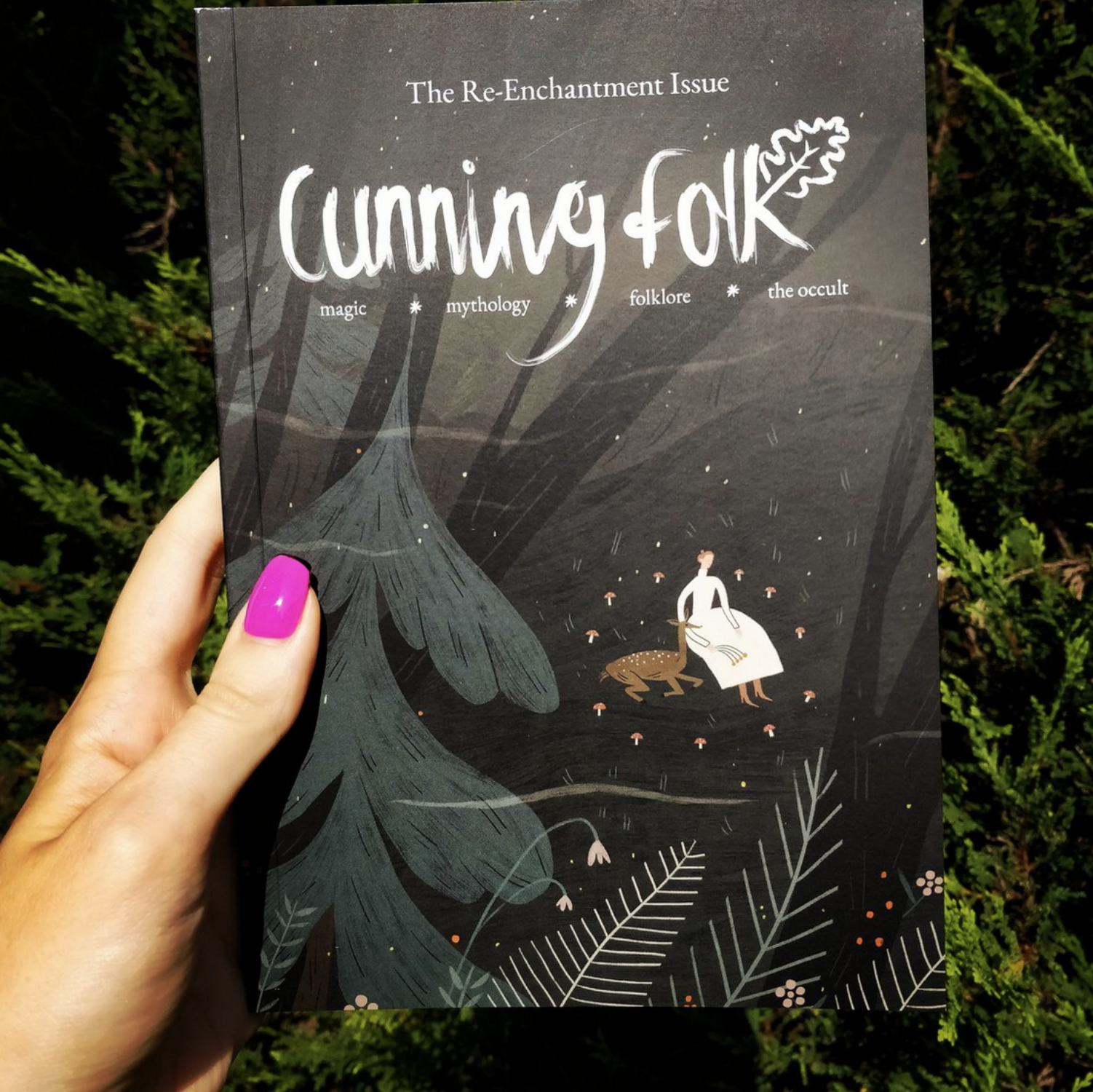Can Hypnotherapy Treat Your Fear of Public Speaking?
Elizabeth Sulis Kim wrote for Cunning Folk Magazine about what her public speaking anxiety feels like.
You’re at an event. There’s a circle. People are introducing themselves, and soon you will have to do so too. You begin rehearsing the words in your head. Your ears feel blocked; you can’t hear what others are saying.
How on earth will you hear your own voice when it pierces through the room, somehow not your own? When it’s your turn to speak, the words jumble; you’re not sure who you are anymore, let alone what you have to say. One of the alternative therapies derivative of the cunning craft is hypnotherapy. Curious, I took up London-based hypnotherapist Jessica Boston’s offer to see what hypnotherapy could do for me.
What is hypnotherapy?
Put simply, on the NHS website, it says: “Hypnotherapy uses hypnosis to try to treat conditions or change habits.” Stereotypically the word “hypnosis" conjures up an image of being coaxed into staring at a spiralling circle of a pendulum by someone who re-writes your mind. Hypnotherapy isn’t really like that. In a hypnotherapy session, you are encouraged into a relaxed trance state and guided through various moments in your life. Your true memories aren’t rewritten; rather, the goal is to change how these memories impact your life now. Jessica Boston, in our two sessions, emphasised the importance of speaking directly to the unconscious mind. So many of our fears are “irrational”, in the sense that they exist, but we know they shouldn’t.
A brief history of hypnotherapy
Elements of hypnosis and hypnotherapy were employed by cunning folk who needed to get their clients into this trance state and in dialogue with the unconscious mind. Such trance states probably date to pre-history. Today, hypnotherapy is still used, though there is limited understanding concerning how it works. This may well be because it appeals to the unconscious mind, our ancient animal brain, the realm of dreams and symbols and imagery that’s not yet fully understood. There’s also the question: “Does it work?” It is generally thought that it doesn’t work unless you allow it to work, which is quite reassuring.
What happens in a hypnotherapy session with Jessica?
I was surprised at how well our session worked via Zoom. The work you do is all in the mind, so I suppose it makes sense. With compassion and sensitivity, Jessica guided me through difficult, sometimes traumatic memories, helping me re-visit parts of myself I’d left behind or buried and have conversations with these ghosts.
Along the way, she prompted me to pull out symbols and images and mantras that served as guides and anchors in the vast realm of memory and interiority. These were drawn from the stories that I find empowering and from recurring dreams—I have written about my recurring whale dreams before—I found this part extremely powerful. As Jessica said, if others were to work with my own set of symbols, they’d likely find them total nonsense. Towards the end of each session, Jessica drew some oracle cards that strongly resonated. After each session, she made me a personalised MP3 that I was to listen to daily. I often did so before sleep, which sometimes resulted in vivid dreams. A week or so in, my whale dreams returned to me.
There are so many alternative therapies that claim to “cure” lifelong anxiety. None of them works like that. Different therapies work for different people. It is good to approach alternative therapies with a healthy dose of scepticism, so long as your mind is open enough that you won’t miss things that are really there. A lot of these things won’t work unless you have this openness to experience.
Early on, I discussed with Jessica my previous experiences with conventional talking therapy. She said that for many people, this can help; for others, it can make issues worse. In therapy, you’re generally dealing with the conscious mind and constantly re-iterating your problem. You know, rationally, a fear is irrational, but that does not alleviate the pain it causes you. She said that sometimes, with hypnotherapy, you can get to the root of a problem quicker.
Two months on, I believe Jessica’s sessions did help alleviate my fear of public speaking. Perhaps it worked because I let it. But I can see the benefit in this therapy which delves into the unconscious mind. As a writer, I have a storytelling brain. Jessica helped me re-frame this anxiety and see how the stories my mind tells itself, based on its prior experience, can be rewritten. Again, the memories are not rewritten, but the narrative is. I found little soundbites from the therapy, which weren’t part of the process, very helpful too. For example, when I’m catastrophising about what might happen, I’m actually channelling my creative capacity in an unhealthy way. It would be healthier and more fulfilling to sit down and write a short story or novel when I need to purge something.
I went out the following week feeling a lot less hyper-vigilant. In the weeks that followed, I got over the idea that I needed someone else to host the Cunning Folk book club. I started hosting it on Zoom alongside an occult writing group. During the lockdown, it’s hard to see full results, so only time will tell. I would recommend trying hypnotherapy if any of this resonates.
If you want to speak your truth out loud and proud you need to work on building your self-confidence. Why not book in one of my AWAKEN YOUR VOICE express sessions?

